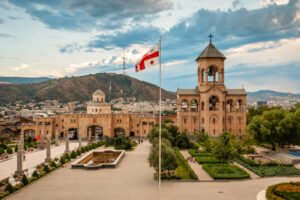Tokyo, 03 April, /AJMEDIA/
The International Energy Agency (IEA) continues to ramp up its efforts to support the COP Presidencies Troika established to facilitate succession among COP28 in the United Arab Emirates (UAE), COP29 in Azerbaijan and COP30 in Brazil, the IEA told AJMEDIA in a press statement.
Following the high-level event with energy and climate leaders organized by the IEA in connection with the COP28 outcomes in February, the agency held another meeting at its headquarters in Paris last week to discuss the upcoming steps.
IEA Executive Director, Fatih Birol, and COP29 President-Designate, Mukhtar Babayev delved into discussions in Copenhagen over the major stages of preparation for COP29, as well as opportunities for cooperation and the IEA support.
While in Berlin, Fatih Birol met with Secretary for Green Economy of Brazil, Rodrigo Rollemberg, to deliberate on cooperation during this country’s G20 presidency this year and the COP30 presidency in 2025 in such issues as fair energy transition.
Additionally, the press statement mentioned that IEA Executive Director Fatih Birol, together with German Vice Chancellor Robert Habeck and Foreign Minister Annalena Baerbock, addressed a high-level audience at the opening of the Berlin Energy Transition Dialogue Conference 2024. He stated that ahead of COP29, to be hosted by Azerbaijan, the primary priority is increasing funding for clean energy production in developing economies.
Fatih Birol underscored that IEA continues to ramp up its efforts to support the COP Presidencies Troika established to facilitate succession among COP28 in the United Arab Emirates (UAE), COP29 in Azerbaijan and COP30 in Brazil
The article by Fatih Birol, published in the “Financial Times” said, “But the events of recent years — including the turmoil caused by the global energy crisis, the sharp spikes in fossil fuel prices and the effects of extreme weather — are all reminders of why we need to press ahead. While changes in governments may well affect the pace of energy transitions — accelerating them in some cases, slowing them in others — they won’t alter the fundamental direction of travel.”









































